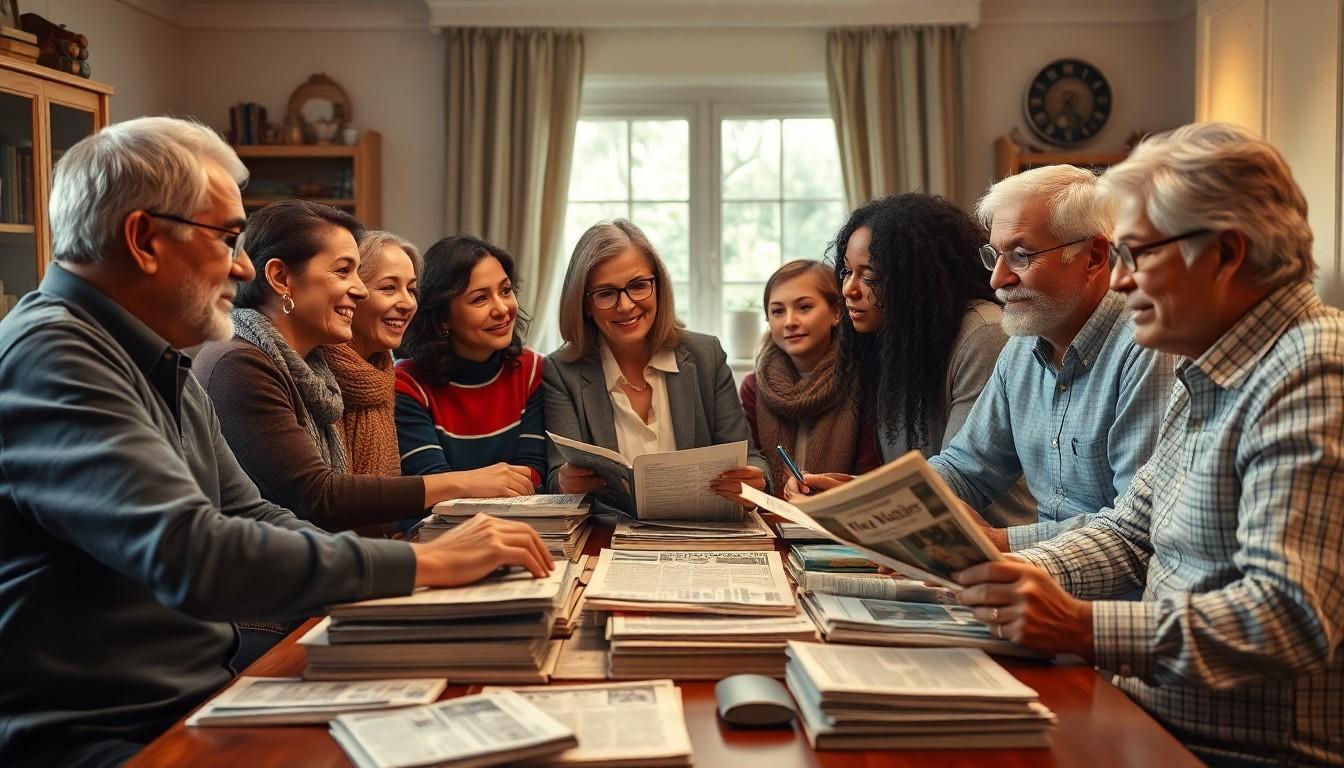Ever wondered why people hold certain political beliefs? It’s not just about who they voted for last election; it’s a complex dance of influences that shapes their values. The process by which these underlying political values are formed is like a secret recipe, blending family upbringing, cultural influences, and personal experiences into a flavorful stew of opinions.
The Process by Which Underlying Political Values Are Formed Is Known As
Political values arise from various influences and experiences throughout life. Family upbringing plays a significant role, as children often adopt the beliefs of their parents. Cultural influences also shape these values, as societal norms and traditions provide a framework for understanding political issues.
Personal experiences contribute to this development in unique ways. Encountering diverse perspectives in different contexts can challenge or reinforce existing beliefs. Educational experiences further influence political values, exposing individuals to various ideologies and critical thinking strategies.
The media serves as another critical factor, as exposure to different sources of information impacts how individuals perceive political events and ideologies. Social interactions with friends and peers can also shape these values, as discussions and debates promote the exchange of ideas.
The formation of political values involves a complex interplay of numerous factors, including upbringing, culture, personal experiences, education, and media exposure. Each element interacts with the others, creating a rich tapestry of beliefs that inform political behavior.
The Process of Value Formation

The formation of political values involves various factors, including psychology and social influences. These elements combine to shape individual beliefs and behaviors.
Psychological Factors
Psychological factors significantly influence political value formation. Cognitive biases affect how individuals perceive information and make decisions. These biases can reinforce pre-existing beliefs. Emotions also play a critical role, as feelings toward political figures or events shape opinions. Personal identity connects to political beliefs, with individuals often aligning with groups that reflect their values. Additionally, personality traits may determine openness to new ideas or resistance to change. Such psychological aspects create a framework within which political values develop.
Social Influences
Social influences strongly impact value formation in political contexts. Family dynamics frequently dictate initial beliefs, with children adopting parents’ opinions. Peer groups contribute by fostering discussions that either challenge or confirm one’s views. Cultural norms and societal expectations further shape perceptions of political issues. Educational environments expose individuals to diverse viewpoints, promoting critical engagement. Media exposure, including news outlets and social networks, influences public opinion and awareness. Collectively, these social factors create a network that directs political value development.
The Role of Education
Education plays a crucial role in shaping political values. It fosters critical thinking and exposes individuals to diverse ideologies.
Formal Education Systems
Formal education systems, such as public and private schools, significantly influence political values. Curriculum choices often highlight civic education, which imparts knowledge about government functions and democratic processes. Students engage in discussions about political concepts, which encourages them to develop their viewpoints. Exposure to different political theories and historical contexts within classrooms shapes attitudes toward citizenship and civic duty. Teachers also play a pivotal role by modeling engaged citizenship, thereby inspiring students to become active participants in society.
Informal Educational Influences
Informal educational influences complement formal education in political value formation. Family discussions about current events or political issues provide context and perspective. Media consumption, including news outlets and social media platforms, serves as an informal educational tool that shapes opinions. Peer interactions, whether in social settings or extracurricular activities, allow for idea exchanges and critical debates. Additionally, community involvement, such as volunteering or attending town hall meetings, instills values of civic responsibility and engagement in individuals.
The Impact of Media
Media plays a pivotal role in shaping political values. It provides the information that individuals consume, influencing their understanding of issues and events.
Traditional Media
Traditional media, including newspapers, television, and radio, serves as a primary source of political information. News outlets frame political narratives, influencing public perception with selective coverage. They help define issues, guiding audience priorities and opinions. Audiences often trust established organizations for factual reporting, yet biases may arise from editorial choices. Consequently, traditional media affects political beliefs by presenting information that shapes narratives.
Social Media
Social media platforms facilitate rapid information sharing and engagement. Users encounter diverse viewpoints, which can alter or reinforce political beliefs. Algorithms curate content based on user behavior, often creating echo chambers that limit exposure to differing perspectives. Personal interactions on these platforms further promote political dialogue and activism. Additionally, social media mobilizes communities around specific causes, amplifying voices and facilitating grassroots movements. As such, its impact on political values is profound and multifaceted.
Understanding how political values are formed reveals the complexity of human beliefs. It’s clear that family upbringing cultural influences and personal experiences intertwine to shape an individual’s perspective. Education plays an essential role by exposing individuals to diverse ideologies while media consumption further influences perceptions and interpretations of political events.
The interplay of psychological and social factors adds another layer to this intricate process. By recognizing these influences individuals can gain a deeper appreciation for the diverse political landscape around them. Ultimately this awareness fosters a more informed and engaged citizenry capable of navigating the complexities of modern political discourse.




